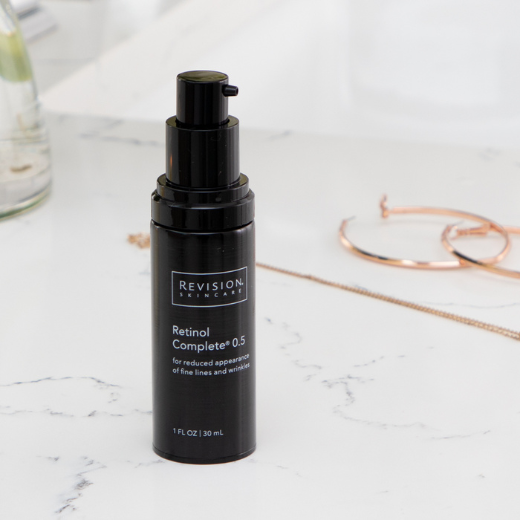A Retinol Guide for Every Skin Type
Posted by Ellie Swain on Nov 17th 2023
If you've been on the quest for that ingredient that seems to tick all the boxes - fighting wrinkles, banishing acne, and giving your skin that much-desired glow - you've likely heard the buzz about retinol. But like any skincare gem, retinol isn't a one-size-fits-all solution.
Your skin type plays a crucial role in how this ingredient will work for you. Let’s learn how.
What Exactly is Retinol?
Retinol is a form of vitamin A, one of the body's essential nutrients. It's a superstar in encouraging skin renewal and enhancing collagen production, and it has a ton of scientific evidence backing up its effectiveness.
It can help with everything from reducing the appearance of fine lines to making dark spots less noticeable.
Retinol for Dry Skin
If your skin is dry, you might be wary of retinol, which is known for its powerful exfoliating properties. However, you can absolutely still benefit from it. The key is to start slow and integrate it cautiously into your regimen.
A lower concentration of retinol - think 0.25% or 0.5% - is a safe starting point. Look for formulations that include hydrating ingredients like hyaluronic acid to counterbalance the dryness. And remember, always (and we mean always) follow up with a nourishing moisturizer to lock in hydration. The Revision Retinol Complete 0.5 is a great place to start for those with dry skin types.

Retinol for Oily and Acne-Prone Skin
If you struggle with oily skin or frequent breakouts, retinol can be your new best friend. It's excellent for unclogging pores, which helps reduce acne. You can start with a higher concentration, such as 1%, but always do a patch test first to see how your skin reacts.
Just know that because retinol speeds up cell turnover, it can bring existing acne to the surface quicker in the beginning – this is called ‘purging’. Don't panic; purging is normal. Your skin will adjust in a few weeks, revealing a clearer complexion.
Retinol for Sensitive Skin
Many people with sensitive skin types shy away from powerful ingredients like retinol. If that's you, don’t worry. Many skincare brands offer retinol products formulated specifically for sensitive skin.
These products often contain a lower concentration of retinol and are combined with soothing ingredients like chamomile or aloe vera.
If you've found that even the mildest retinol irritates your sensitive skin, you might want to consider bakuchiol. Often touted as a natural alternative to retinol, bakuchiol is extracted from the seeds and leaves of the Psoralea corylifolia plant.
Bakuchiol provides many of the same benefits as retinol, such as boosting collagen production and reducing signs of aging, but without the common side effects like dryness, peeling, or irritation. Several studies have even shown bakuchiol to be comparably effective to retinol, making it a suitable option for those with skin that's more on the sensitive side.
The Replenix Retinol + Bakuchiol Concentrated Serum combines the best of both worlds, helping to improve the appearance of discoloration, fine lines, wrinkles, pore size, uneven skin tone, and blemishes, all with minimal incidence of redness or irritation.
It's also advisable to initially limit the application of retinol to once a week, then gradually build up as your skin becomes more tolerant. Or, you can consider transitioning to a bakuchiol or bakuchiol combined with retinol product.

Retinol for Normal and Combination Skin
For those with normal or combination skin, consider yourselves lucky. You can enjoy a more flexible approach to retinol. Starting with a medium concentration like 0.5% is generally recommended.
You can then gradually work your way up to higher concentrations if you feel your skin can tolerate it. Just make sure you're also using a good moisturizer and sunscreen to maintain that balanced glow.
Retinol Tips for Everyone
When starting with a new retinol product, always perform a patch test to see how your skin reacts. You should also only apply retinol at night as it can make your skin sensitive to the sun.
And wearing sunscreen daily is a must. Retinol can increase your skin's sensitivity to UV radiation, so a broad-spectrum SPF is non-negotiable.
Retinol is indeed a multi-faceted marvel, capable of delivering fantastic results for various skin types. Just remember, the most effective skincare routine is one tailored to you. Start slow, listen to your skin, and don't hesitate to consult a dermatologist to get the most out of your retinol.
Do you want more skincare advice? Here are the best ingredients for your hand cream.

